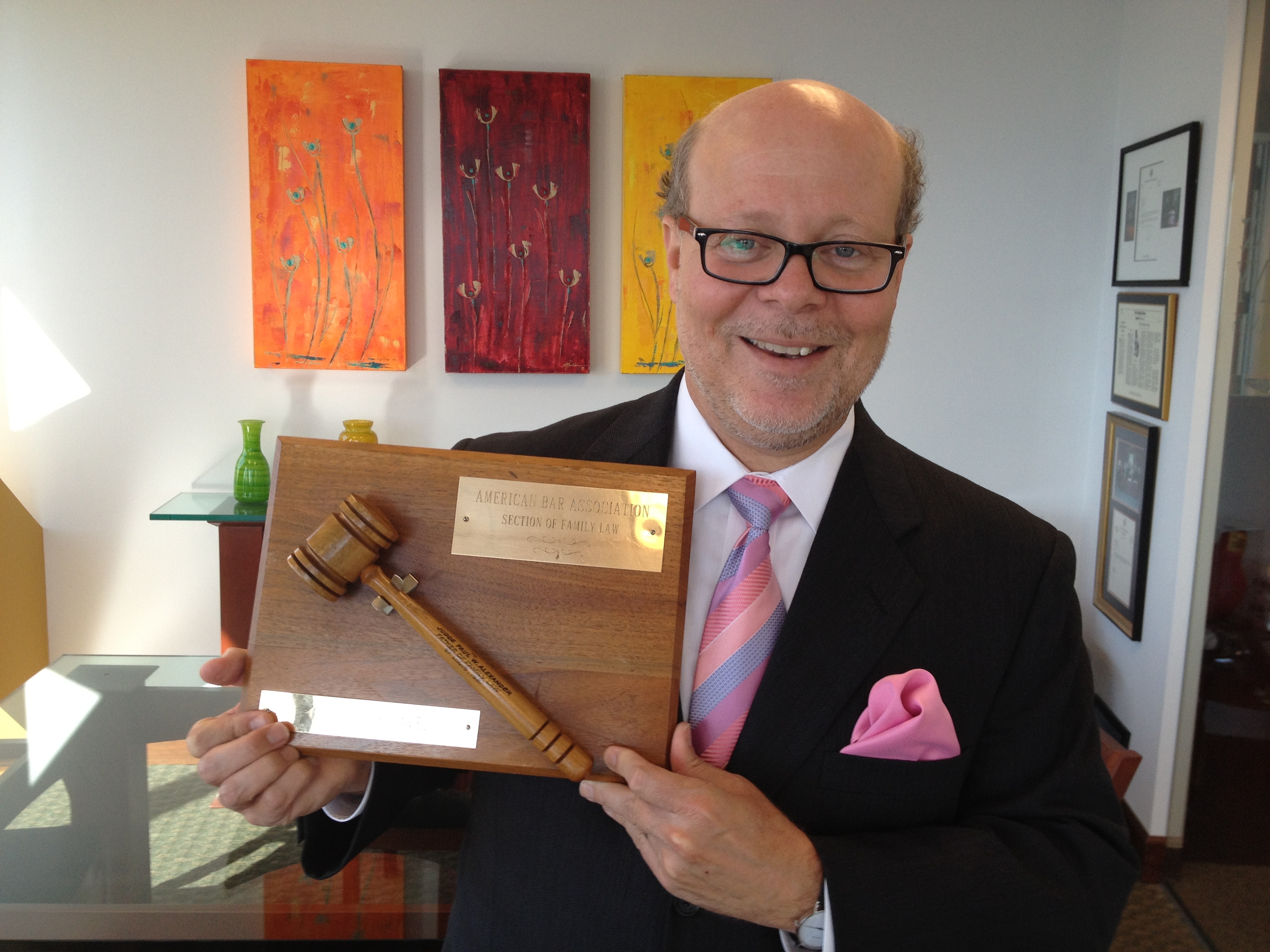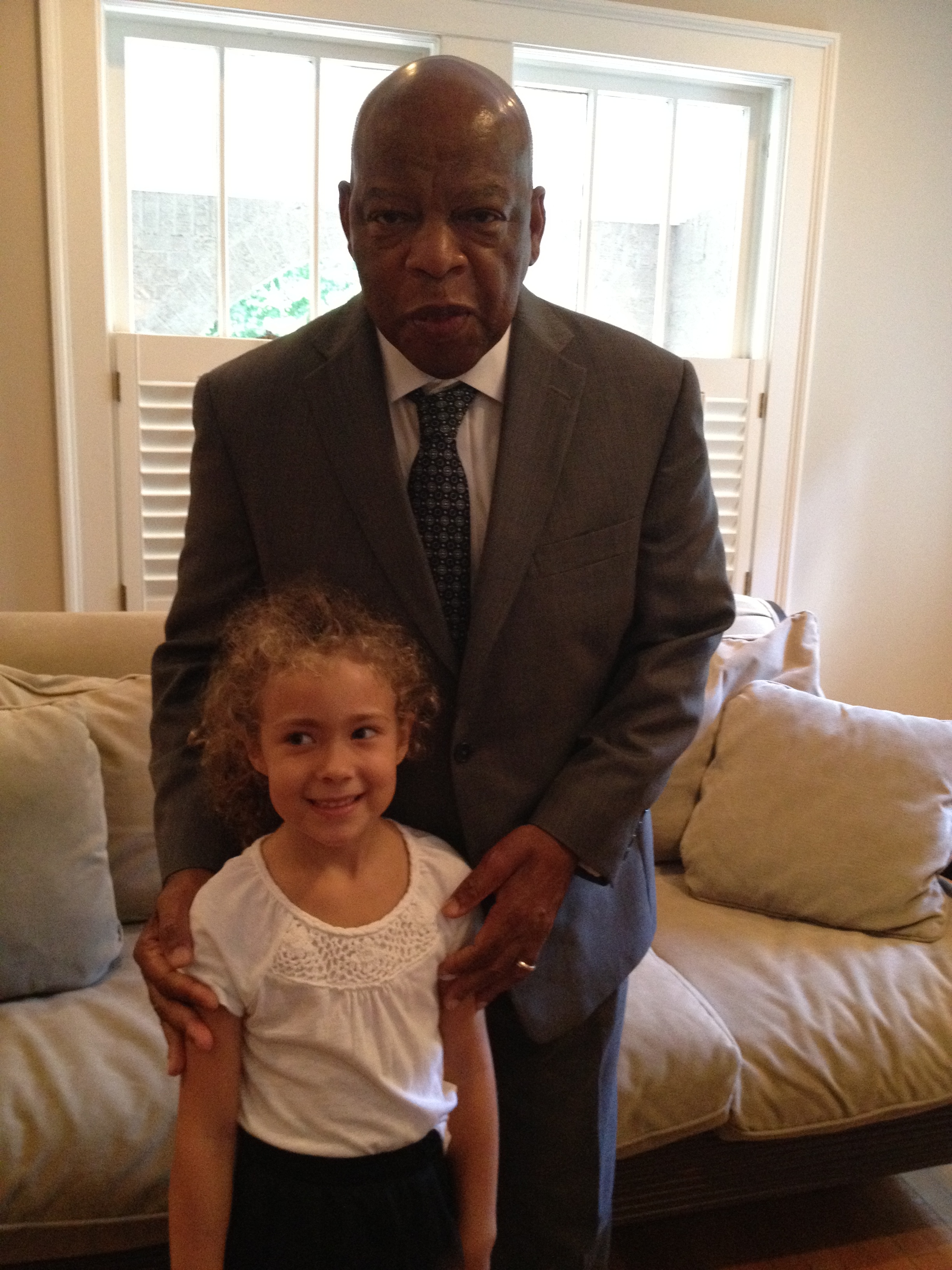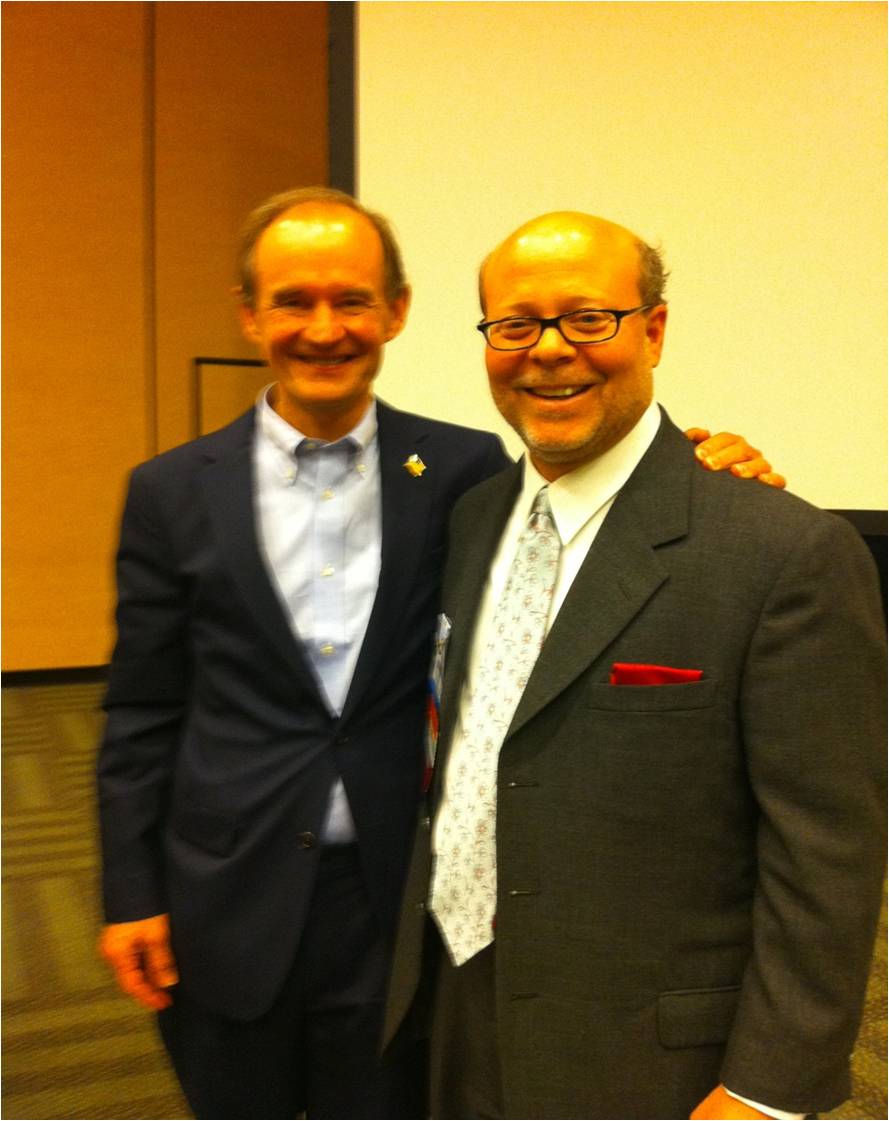 As written for my “Influencers” post:
As written for my “Influencers” post:
Once a year I travel to meet with about 20 of the finest family law attorneys in the country. This is that week. I always learn something and gain an optimism after each yearly meeting that lawyers can make a difference. We deeply explore systemic problems and ways to fix them. We discuss helping individual clients as well as how to assist the legislatures and the courts to better understand the needs of individuals embroiled in family law cases. But most importantly, the sometimes very depressing work we do on a day to day basis looks and feels much more positive when we realize we all struggle with the same dilemmas. How to convince a client that settlement is better than court. How to explain to a client that even though their spouse cheated, the children still love them both and want them to get along. How to ensure they are financially protected without spending all their savings on discovery and other legal procedures. These are dilemmas. But I know that my colleagues are good, decent people trying their best to help. This is refreshing and inspiring. I respect them and am honored to be able to join them. And I look forward once again this year to being inspired and educated. I owe it to my clients to learn as much as I can to help them. And learning from experts from around the country is one of the best ways to do that.
Bar Mitzvah year, 2013
2013, a future has arrived. Just the name of the year, 2013, still sounds to me like a science fiction title. While the number 13 has to many been a symbol of bad luck, it seems that 2013 is starting off right. 2012 (not 2013) was, per the Mayans, to be the end of the world and the fiscal cliff dilemma seems to have subsided. But whatever your superstitions or concerns may be, it really is a time and chance to move forward. 13 is a magical number. It is the year a Jewish child becomes an adult through a Bar Mitzvah. It is the first “teen” year. And it is a brand new year for all of us.
Despite the instability in the Middle East and many other troubles worldwide, we have still avoided a world war, even though after the first one, barely twenty years elapsed before a second one arose. We have found ways to work together, despite so many differences. And in my profession, that is the key, both for lawyers and litigants. People who sue each other obviously have differences. But even in litigation, we are all human and owe each other the basic respect and civility which makes us human beings. There will always be those who battle for every last inch. And when pushed, even the mildest mannered lawyer can return the favor. But as lawyers, as counselors, we must stay on task. Seek our clients goals, while advising them competently during the process. Help them decide which goals are unattainable, or will only come at too high a price. We must give them good, reliable advice that will help guide them to make good, informed decisions. Variables include not just the financial cost of litigation, but the cost in terms of lost time, damage to relationships with children and actual damage to children which expands the longer litigation lasts. Yes this is our duty and if done well, can help families and society.
I remain proud to be in a profession which has the ability to help in so many ways. If practiced well, the profession of law can and should benefit us all. Without laws, without civilization, we lose our unique characteristics that make us human. Might becomes right, and we become like any other creature on earth. Laws are valuable, perhaps invaluable, but the manner in which they are enforced, argued and used, is up to us. And it is this duty, (the duty to act civilly and ethically) which can make the law work for all of us.
 I have been so fortunate to have been able to serve as Chair of the Family Law Section of the American Bar Association for the 2011-2012 term. I cannot believe the year is drawing to a close. To have been allowed to lead this section, has truly been an honor and the highlight of my legal career and bar service. About 15 years ago I served as Chair of the Family Law Section of the Atlanta Bar Association. I have served as Chair of the Standing Committee on Substance Abuse for the American Bar Association and as Chair of the Family Courts Committee of the Family Law Section of the ABA, as well as Chair of the Family Law Section of the Georgia Bar Association. This year has really been a culmination for me and I really know for sure now, that being a lawyer, and serving the bar and the community in ways beyond representing clients, is what makes ours a profession worth pursuing. I have been fortunate enough to meet lawyers and judges from across the world. And while there are many different personalities in our profession, like any other, there are so, so many people trying so hard to do good and to make the world a better place.
I have been so fortunate to have been able to serve as Chair of the Family Law Section of the American Bar Association for the 2011-2012 term. I cannot believe the year is drawing to a close. To have been allowed to lead this section, has truly been an honor and the highlight of my legal career and bar service. About 15 years ago I served as Chair of the Family Law Section of the Atlanta Bar Association. I have served as Chair of the Standing Committee on Substance Abuse for the American Bar Association and as Chair of the Family Courts Committee of the Family Law Section of the ABA, as well as Chair of the Family Law Section of the Georgia Bar Association. This year has really been a culmination for me and I really know for sure now, that being a lawyer, and serving the bar and the community in ways beyond representing clients, is what makes ours a profession worth pursuing. I have been fortunate enough to meet lawyers and judges from across the world. And while there are many different personalities in our profession, like any other, there are so, so many people trying so hard to do good and to make the world a better place.
 I recently attended an event for Congressman John Lewis. He explained how he has been getting in “good trouble” his whole life. What an inspiration he was and is. We should all get in “good trouble” and help make positive change in our world. For me, it is in my limited capacity as a family law attorney, but for all of us there is a way. My year has had it’s challenges just like any other year, but it has been quite an interesting one for Family Law. DOMA seems about ready to fall. Grandparent’s rights are evolving. International custody issues have been given more attention. We should all be helping ensure that these issues get the attention they deserve. Family Law attorneys can and should continue to help legislatures and courts understand the law and the ramifications of poorly drafted statutes or poorly interpreted laws. We should also help the public understand them. Knowledge is power and we should all be as knowledgeable as we can about the laws which shape our country.
I recently attended an event for Congressman John Lewis. He explained how he has been getting in “good trouble” his whole life. What an inspiration he was and is. We should all get in “good trouble” and help make positive change in our world. For me, it is in my limited capacity as a family law attorney, but for all of us there is a way. My year has had it’s challenges just like any other year, but it has been quite an interesting one for Family Law. DOMA seems about ready to fall. Grandparent’s rights are evolving. International custody issues have been given more attention. We should all be helping ensure that these issues get the attention they deserve. Family Law attorneys can and should continue to help legislatures and courts understand the law and the ramifications of poorly drafted statutes or poorly interpreted laws. We should also help the public understand them. Knowledge is power and we should all be as knowledgeable as we can about the laws which shape our country.
Again, I am grateful for the opportunity to serve and hope I can continue to contribute. Those of us who have been fortunate enough to be so involved have a duty to continue to help and to ensure that ours truly remains a “profession” and not just a job. Let’s keep trying to make this world a better place.
 On January 12, 2012, Dennis Collard and I will be presenting at the State Bar of Georgia on “Winning Settlement Strategies. The seminar brochure can be accessed by clicking here (click for brochure). We are the final speakers for this fine seminar being put on by the General Practice and Trial Law section of the State Bar of Georgia. Other fine speakers include Pete Law and Judge Gino Brogdon among others.
On January 12, 2012, Dennis Collard and I will be presenting at the State Bar of Georgia on “Winning Settlement Strategies. The seminar brochure can be accessed by clicking here (click for brochure). We are the final speakers for this fine seminar being put on by the General Practice and Trial Law section of the State Bar of Georgia. Other fine speakers include Pete Law and Judge Gino Brogdon among others.
Too often the focus on lawyer education is on how to go to trial. While our particular presentation does indeed cover preparing for trial, our overall point is that by preparing well for trial, you make it more likely you will achieve an appropriate settlement. As with most seminars, the best part of the day will be listening to and watching the other speakers so that I may learn from them. If you are able to join us, please do. And if you have any suggestions for us to consider incorporating into our presentation, please let us know.
 I have been very fortunate to have been invited to speak at a few seminars recently on high profile and high asset divorce. This month (November, 2011) I have already spoken in Mexico to Sports and Entertainment Lawyers, to Asset Recovery Specialists in Las Vegas, and on November 21, 2011, I am on a panel with David Boies and others to speak on High Profile representation (for program information, click here). Over 2,100 lawyers have signed up for this one. While it is always flattering to be asked to speak, being asked to speak alongside one of, if not the best lawyer in the country, David Boies is one of the highlights of my career. Just preparing with him and the other panelists has been a thrill. The real challenge will be to not say too much during our presentation so that I may learn as much as I can from him and our other panelists.
I have been very fortunate to have been invited to speak at a few seminars recently on high profile and high asset divorce. This month (November, 2011) I have already spoken in Mexico to Sports and Entertainment Lawyers, to Asset Recovery Specialists in Las Vegas, and on November 21, 2011, I am on a panel with David Boies and others to speak on High Profile representation (for program information, click here). Over 2,100 lawyers have signed up for this one. While it is always flattering to be asked to speak, being asked to speak alongside one of, if not the best lawyer in the country, David Boies is one of the highlights of my career. Just preparing with him and the other panelists has been a thrill. The real challenge will be to not say too much during our presentation so that I may learn as much as I can from him and our other panelists.
While we have been honored to represent our share of public figures, David Boies has been hired for the biggest cases by the highest profile clients (Al Gore, Mrs. McCourt, the NFLPA and the NBPA among others). This program will be educational for all, and I will have the best seat in the house. I am flattered and grateful to have been invited onto the panel and look forward to learning a lot from my co-panelists. If there is anything you want us to address during the program, let me know so I can see if we can work it in. If we can’t, I’ll do my best to get answers to your questions after the program.
Each Fall, the American Bar Association holds it’s annual Section Officers Committee meeting in Chicago. This year it begins this week. Each section, division, forum, etc. of the ABA has officers who are new each year. Those officers all come to Chicago to learn how to best perform their roles as Secretary, Vice Chair, Chair-Elect, etc. of their particular group (for me it will be as Chair-Elect of the Family Law Section). It is great to be around so many lawyers who are committed to improving the practice of law. Each lawyer sacrifices two to three days of work to be at the meeting, yet it never feels like a sacrifice. There are “big picture” discussions about the general practice of law, things we can do to help our communities, things we can do to help educate the public about new laws and how we can improve the overall workings of the entire ABA. There are also “small picture” discussion groups focused on how we can each help our particular group (family law, business law, criminal law, etc.). Click here to see the SOC page on the ABA website describing SOC.
While some may say it is inconvenient, especially since each of the officers attending also typically attend four or five other ABA programs each year, including a Spring and Fall program for their area of law as well as the ABA annual and mid-year meetings, it is valuable. It is a chance to step aside from the basic programming and educational aspects of the ABA and to focus on how we can each use our strengths to better our individual areas of practice as well as the ABA as a whole. I am looking forward to it and to actively participating. It feels good.
A Georgia Public Broadcasting article suggests birth rates and divorce rates are down in this poor economy. But is this a good thing? We must remember that divorce, is a legal proceeding, not a determinative identification of which marriages are stable and which are not. Perhaps the economy is preventing some folks from filing legal papers or hiring lawyers, but does that really mean more people are staying together (and if so, happily?). I think not. From my perspective, many people who have struggled for years trying to maintain a marriage have had it. On top of years of marital or relationship troubles, the stress of a poor economy puts many couples over the top. The economy may be the proverbial “last straw”.
Couples who are in distress, especially those living in separate residences, often need the court’s assistance to decide how funds are shared between the parties and how time with the children is allotted. But in a poor economy, many cannot afford an attorney so they often ignore the legal process and engage in self help. This may work on an ad hoc basis, but troubles are inevitable. And if we do see a decrease in divorce, unfortunately, in my opinion, we will see a rise in other legal areas, such as child kidnapping, criminal claims of abandonment and even domestic violence as people take out their frustrations on each other (frustrations which a “good divorce” or “good divorce agreement” might have avoided).
So, the real issue is not whether divorce rates are down, but are marriages healthier? Are people now staying together and resolving their issues. Or are they simply not able to afford the safeties and resolution mechanisms divorce courts provide?
Politics and judgeships shouldn’t mix, but they do. Across the country judges are elected or appointed as part of the political process. Where they are elected, as they are here in Georgia, should lawyers who appear before them be allowed to contribute to their campaigns? Or, maybe the opposite makes sense, lawyers should really consider contributing since lawyers are in the best position (usually) to know which judges are better than others?
The Georgia Supreme Court is now taking a serious look at the issue. The good news is that it seems this is not a “rush to judgment”. There has been a study group and the apparently many different aspects and factors are being considered. The point I made in the first paragraph illustrates the dilemma. On one hand, is it right for lawyers who appear before a judge to contribute (or to refuse to contribute) to a judicial campaign? Does that indiciate a potential for unfair treatment (favorable for donating, unfavorable for not donating)? Perhaps? But if contributions are made to ethical candidates, then the risk is reduced. On the other hand, if lawyers are prohibited from contributing to judicial campaigns, then the contributions will come from less informed sources who may not have had nearly as much experience with the particular judge. Wouldn’t we prefer that those in the know help guide the rest of us?
This is a fascinating issue. There are lots of “workarounds”. Lawyers can (and should, in my opinion) participate actively in opinion polls about judges. Lawyers should educate their clients and friends about judicial races given the insight lawyers, at least trial lawyers, may have about certain judges. But all too often we sit on the sidelines. We know which judges are excellent and we should strive to keep them in place. This benefits society as a whole and lawyers are in a unique position to help and can, and should do their/our part.
 As written for my “Influencers” post:
As written for my “Influencers” post:




